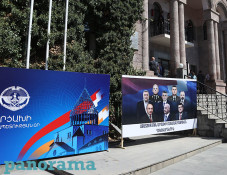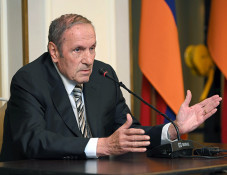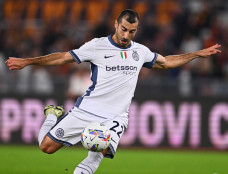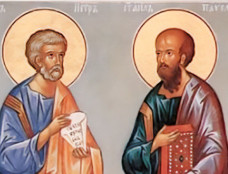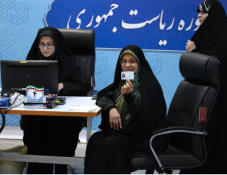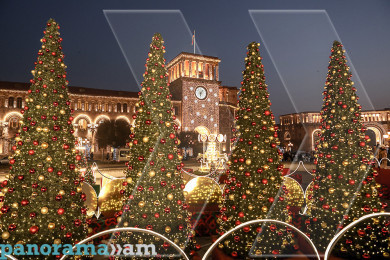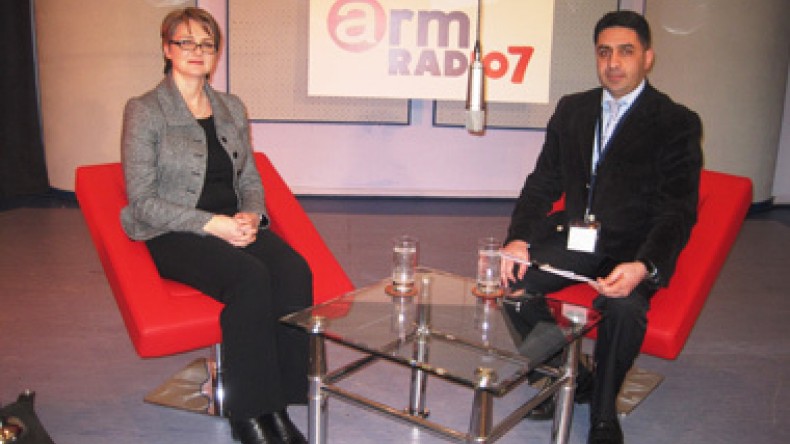
British Ambassador: Our primary objective is to support Minsk Group process
- Madam Ambassador, thank you very much for accepting this invitation and for being with us in the framework of this analytical radio show.
- Thank you; it’s a pleasure to be here.
- Let me first wish you a very fruitful and a productive diplomatic mission in Armenia.
-Thank you
- Բարի գալուստ Հայաստան. It seems that you are learning Armenian?
- I am
-Maybe, you will be able, very soon, to enjoy Armenian translations of Shakespeare, Arthur Conan Doyle, Charles Dickens or of many others who are loved by Armenians and also, to enjoy the Armenian literature in Armenian. Do you think that for an Ambassador learning the language of the country that she or he is appointed in is an added value for understanding the culture of the country and all other aspects?
- Of course, and in fact it is something which the Foreign Office has always put a great stress on, and I think it is one of the things which actually distinguishes our diplomatic service from some other diplomatic services. We see language learning as really crucial for getting under the skin of a country and widening the group of people you speak to. So I very much hope that I can get my Armenian to that kind of standard, where I can talk freely to people.
-It has been only a month that you are in Armenia.
- Yes
- So, what did you know about Armenia before you came here and now when you are already in Armenia? What did you strike the most in both positive and negative ways?
-Well, my background is a Russianist, so I first came to what was then the Soviet Union over twenty years ago and I was actually, in the Soviet Union from 1991-1992 аs the Soviet Union fell to pieces and number of these conflicts and other issues came to the fore. So, this region is one which is very familiar to me, although I had not had the opportunity to visit Armenia until last year. I think what has struck me so far is, on one hand, how far things have come. Walking around central Yerevan there are western style shops and restaurants and prosperity. I know, at the same time, that this prosperity does not extend to the regions, and I guess this is the thing which is very striking to a foreign visitor, this gap between rich and poor and the huge task which still faces the government.
- Is Armenia an important partner to the United Kingdom? If so, in what ways?
- Actually, January celebrates the twentieth anniversary of our diplomatic relations. We were one of the first countries to establish diplomatic relations with newly independent Armenia and since then I would say that Armenia has really occupied a very important place in our minds and in our hearts, and it is partly of course because of your geographical situation. The South Caucasus will always be a very important area. It is also because we have an Armenian Diaspora; it is not big compared with some of the other countries but we have perhaps 18,000-20,000 people of Armenian descent in the UK and they make their presence felt in a very positive way. So, there are plenty of examples of good things done in our bilateral relations over the last twenty years, but I hope I can make a big difference in pushing things forward to another level.
- It is not a secret that the oil and other hydrocarbons play a huge role in shaping foreign policies of big powers. And some share the view that for the British foreign policy Azerbaijan is much more important to the UK than Armenia just because of the oil and British Petroleum in Baku. Do you agree with this opinion?
- Well, without a doubt, Azerbaijan is a very important energy partner for us and we are the biggest foreign investor in Azerbaijan. So, of course that is important, but I would say it is not the only calculation in our foreign policy, and it is obviously one of the reasons why the whole region is very important as an energy corridor, as an area where stability is actually a key policy priority. So, this does not mean that we favor Azerbaijan over Armenia, absolutely not. Without stability and prosperity for Armenia there can be no stability and prosperity for the wider region. So for that reason Armenia’s interests are very important to us.
- How do you assess the level of Armenian-British trade relations? Besides that we have already some 20 companies and joint-ventures with British Capital, it seems that the United Kingdom is not yet one of the main partners of Armenia.
-Yes, I think that we can do better. It is slightly difficult to judge the current volume of trade relations, because I think some trade comes via Georgia and is not captured by the statistics. But I think it is certainly an area where we need to do much better and which is going to be a priority for us going forward. It is a political priority for the government; for our foreign secretary and I think there is a lot of interest actually on both sides. The Armenian-British Business Chamber which was established only two years ago, in 2010, it has already grown to over 40 members, new members are joining all the time. I think that is an indication that there is a lot of interest in Armenia in building those links and building on some of the relationships that we already have. So, I want to do everything I can to promote that further.
-Are there some obstacles to British investments in Armenia? What are the main obstacles to more investments in Armenia?
- Well, I think the key thing that any foreign investor would say is concern about the business environment and about corruption, in particular. And sometimes these concerns are more about perception than reality but certainly there remains a perception amongst British investors that Armenia is a difficult market and that perhaps you need to know the right people in order to make the right investment. And the aim of our EU colleagues through the Technical Assistance Program and other donor programs like the World Bank, UNDP is to try to make sure that the business environment is as open, as free, as fair as possible because that will encourage foreign investment. And I know from the Diaspora Community in the UK that there are investors who really want to make that contribution to Armenia if they can feel that they have recourse to law and that they will be treated fairly.
- So, they think that there is corruption and it is not safe to invest there? What are the main concerns for them?
- I think rule of law is one issue. You may have problems with the current business, but if you have faith in the judicial system then you believe that you have a way of solving those problems. So, that is part of it. And I think there are other issues about monopolies in particular sectors where it seems to be difficult for newcomers to get a foothold. These are the kinds of areas. For example, is the tax regime, transparent and free of corruption? Those are the issues, I think, which our investors are interested in.
- I know you are not yet very familiar with Armenian domestic politics. However how complicated is it for you? What are the main areas that Armenia should be focused on?
-Well, it is hard to answer that question without immediately saying; elections. I mean that is the very big issue which is facing the Armenian political system at the moment both in May, when we presume the Parliamentary Elections will be, and then, of course going forward to the Presidential Elections. And I cannot stress enough how important it is that these elections are as free and as fair as they possibly can be and it really is the responsibility of everybody. Obviously we need the clear signals from the political leadership, from the political parties but it is up to the individual citizens as well to demand that the system is fair, to refuse to take bribes, and if those bribes are offered to ring the helplines that the Human Rights Ombudsman and others have set up, if they see violations. It is really a critical moment I think for Armenia, and if the elections go well, then this opens up big possibilities, particularly in the Armenia-EU relationship.
- Did you follow the last Hrazdan city Mayor elections?
- Yes, yes
-So, what do you think about that?
-Well, I think that there are some positive aspects, there was a very vigorous contest between two credible candidates and the final result was pretty close, I think about 1500 votes in between it?
- That’s officially.
- Yes, yes
- But do you think that there were some non-official results as well?
- Well, there is some YouTube footage which is interesting and obviously there are other reports on the internet about possible violations. I don’t believe that there are any official complaints but the question of use of administrative resources I think is one of the big issues and the extent to which particularly government employees may have felt directed to vote. I think these are the key issues that really need to be tackled in advance of the Parliamentary elections.
- In 2010 President Sargsyan visited the UK, and among many other topics, the NK issue was discussed as well. Besides that UK supports the peaceful resolution of the conflict in the framework of the OSCE Minsk Group mandate, what do you think about this conflict? And does the UK have any suggestions on how the conflict should be resolved?
- Well, you are right of course. Our primary objective is to support the Minsk Group process and the best way that we can do that is by trying to think of other things we can do that will support it. So, for example, for a long time, the Embassy has supported people-to-people contacts between Armenia and Azerbaijan. We have a number of projects under our Conflict Pool fund. And these are small projects but they try to bring groups together: journalists, young people, sometimes academics or other opinion formers. In the past we have also brought parliamentarians together. And when government-to-government contact is so difficult, I hope that these projects make a contribution.
- Britain has a number of think-tanks and NGOs that are deeply involved in conflict resolution activities. A huge amount of money is spent every year on trainings, seminars, publishing books, research, and other activities to help diminish the likelihood of new conflicts and to build peace and confidence among conflicting sides. Even though we are in the 21st century, there are still conflicts and conflicts sometimes become violent. More and more conflicts arise between those who want to get independence from the center and those who try to keep the territorial integrity of the country by any means. How the international community should reconcile these two principles of self-determination and territorial integrity to avoid bloodshed between conflicting sides?
- I think this is the most difficult question, because as you say those two principles can appear at first glance at least, to be contradictory: how do we reconcile self-determination and territorial integrity, and the only way of doing it is through political negotiation and by taking each case on its merits, looking at the case, trying to support both parties in the conflict to find a way forward.
I mean if I could give a couple of examples from the UK experience. I know there has been a lot of interest in Armenia on Scotland. But of course another important question which sometimes gets forgotten is Northern Ireland, where again these questions of self-determination and territorial integrity come into play. And with both those cases we have taken a slightly different approach. The issue about Scottish Independence has been on the political agenda for quite some time. It is one of the reasons why the previous Labor Government set up the devolved administrations, the Scottish Parliament, the Scottish government and the Welsh Assembly, as a way of trying to promote this political dialogue. And now with the election of the Scottish National Party in Edinburgh, the issue of the referendum has now come to the fore and the Government in Westminster has agreed that we will have a referendum on Scottish independence and we are currently having a consultation with both the people of Scotland and also the Scottish Executive to look at the best way to hold that referendum.
Northern Island is a slightly different case because there of course we have had bloodshed and many deaths and people injured over the last 20-30 years of the troubles and there, I would say, in 1998 we finally had a breakthrough which has not been a smooth process; we have had two steps forward and one step back often but we are now in a far-far better place in Northern Ireland than we were even 10-15 years ago. So, and the question of self-determination is there on the table, there is an option to have a referendum at some point in the future but at the moment both parties to the conflict feel that the time is not right. So, a referendum will happen later.
-Will Holyrood and Westminster decide on the future of Scotland or there will be a referendum across the UK?
- No, the idea is that the referendum in Scotland will be for the Scottish people. So, it will not be the whole of UK voting, it will just be the people of Scotland.
- Interesting… Turkey and the UK maintain a very good level of bilateral relations in many aspects. Both countries are members of NATO, members of the G20 and Britain supports the accession of Turkey to the European Union.
- Yes
- Do you think that the UK can or should have some influence or some pressure on Turkey over normalizing relations with Armenia and possibly opening the border and lifting the blockade in the framework of protocols signed in Zurich in 2009?
- Well, I hope, as a friend of Turkey, that we do have influence and certainly we have had a very strong dialogue on human rights with Turkey for a long time and we absolutely support the Protocol process, the normalization of relations. This is for us a huge priority and our position has been that pulling Turkey closer to the EU is in Turkey’s interest, in Armenia’s interest, in our interest. We think this is one of the best ways we can help to resolve the situation; our hope is that there will be some steps forward.
- Why the international community which was very active at the beginning of talks over unfreezing the stalemate situation between Armenia and Turkey is not that active now especially when the situation in the wider region, I mean Syria and Iran becomes quite dangerous?
- I think there are a number of reasons. I think the International Community has been waiting to see whether the Protocol process can be reanimated, whether there is a way of reviving it because that has to be the first priority. I think you are right that other regional issues have dominated the political agenda, the international political agenda over the last year. The Arab Spring last year, I think took many of us by surprise, many analysts did not predict that particular moment and I think we are still in the middle actually, as we can see with Syria of seeing some of these processes play themselves out and it is a very difficult moment to make predictions. So, I am afraid that international attention has been devoted to some of these issues where conflict is very clear and obvious but that does not mean that we have forgotten, it remains on the agenda and it is very important.
- Some say that the Turkish-Armenian rapprochement process and the NK issue should be tackled together. Do you agree with this position?
- We supported the Protocol process which separated the issues and we continue to say that Turkish-Armenian normalization should be without preconditions.
- In the context of the current status quo over the NK conflict, Armenia opts for a peaceful resolution of the conflict and does not want a new war with Azerbaijan. On the other hand, Azerbaijan does not stop its military rhetoric. Surprisingly, some say that this kind of rhetoric comes from both sides. I will not really agree with this statement; however what could be your suggestion, your advice to both sides?
-Well, I think the clear advice is that military rhetoric does not help the situation. We have to look at ways of bringing the governments together and further improving people-to people contacts. And it is very clear from my conversations with a number of people that there is so little communication even on humanitarian issues, for example, commissions looking at those who are missing on both sides, those who remain unaccounted for and whose families remain trapped in a situation where they do not know what happened to their loved ones. In the past those commissions have worked very well together to find the remains of people lost in the conflict and to identify and return them to their families, but my understanding is that for several years there has been no contact on these kinds of issues. That seems to be an ideal place to start, to look at these humanitarian issues and to try to find a way to work together.
- How do you see the future of the EU as a British Ambassador?
-That is a big question but there is a simple answer which is: It is a very strong union which has proved its value over the course of many-many decades and as the UK, we remain right at the heart of Europe and we will continue to work very closely with our European partners to promote Europe’s prosperity. We all understand that we have gained so much from working together. The landscape in Europe has been transformed over the last 60 years and we are very proud of the way the EU has brought new partners in over the last 20 years from the countries of the former Iron Curtain. It has been an incredibly positive development for the EU and for those countries too. We have some difficulties now as other major economies do with the US and Japan as well, looking at the overall economic picture but I am confident by working together we will find a solution. It may take a little longer.
- Why violent riots and unrest happened in London last summer? Is it linked to what Brzezinski called a political awakening? Is it the same like in Arabic countries, in Russia maybe or is it a totally different thing?
- I think it is different. In fact, there are people at the moment studying some of the causes of the riots in London last summer. It was a very painful experience for us and I think particularly for our police who had prided themselves on actually developing a very effective way of dealing with civil disturbance. And they found themselves faced with a rather new and different situation aided by Blackberry Social Media which enabled these frankly often criminal gangs to organize and congregate in different parts of different cities and smash and rob shops and endanger the lives of other people. So, I think there are a number of factors: socio-economic issues to deal with deprived youth in the inner cities, issues to do with perhaps police methods, and there are lessons we have to learn but it was a very painful period for us and I hope that we are learning these lessons.
- And my last question. Do you see Armenia in the EU?
- Well, I think the answer to that partly depends on what Armenia wants.
- Of course, but do Europeans see Armenia in the EU in the future? Of course, it depends on us, for sure, but let’s say do we have this inspiration, do you see this inspiration to be a part of the European family? Or it is ok to be part of the European Eastern Partnership Program and that is what we will have, with no hope to be part of that Union?
- At the moment I think it is difficult to say. I think what we definitely want is to increase this process of integration, because it has benefits for us and benefits for Armenia. I think about the third of Armenia’s trade is with the EU and we would obviously like to increase that. So, we want to pull you closer and we hope that you want to come closer and learn together with us. But what will happen in future is difficult to predict at the moment.
- Does the EU need Armenia?
- I think we would like to see a stable and prosperous South Caucasus and if that means Armenia joining the European Union, then maybe that should be the part of the vision.
-Thank you very much for this very insightful conversation and for your ideas. Thank you!
Newsfeed
Videos








